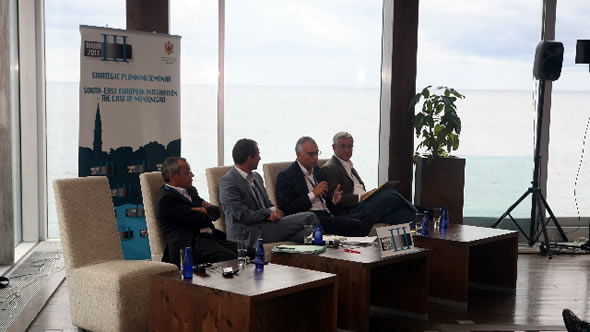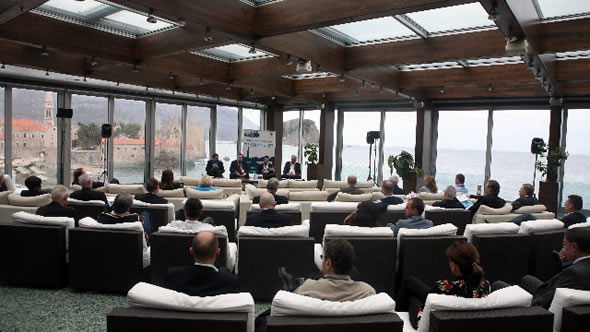Montenegro – at the strategic planning seminar on South Eastern Europe's Euro-Atlantic integration

ESI's Kristof Bender attended the third "strategic planning seminar" on the euro-atlantic integration of South East Europe. The event, organised by the Montenegrin Ministry of Foreign and European Affairs from 7 to 9 October in Budva, took place just a few days before the European Commission issues its annual progress reports on 12 October.
Kristof chaired a panel on how to keep EU enlargement on track. Panelist were Stefano Sannino, Director General of DG Enlargement, Jean-Michel Casa, Director of the European Union directorate at the French Ministry of Foreign and European Affairs, Michal Czyz, Ambassador-at-large at the European Policy Department of the Polish Foreign Ministry, and Bruce Jackson, President of the Project on Transitional Democracies in Washington.
The European Commission is expected to report significant progress made by the new Montenegrin government under Prime Minister Igor Luksic and to recommend the start of EU accession negotiations. ESI thinks it is important that the European Council in December consents to the start of negotiations.
One precondition for the accession process to have been a successful transformative tool in the past has been its meritocratic nature. Criteria were strict, and have become stricter with every enlargement round; and ye t, once they were met, applicants were treated fairly and allowed to move to the next steps. Neither the European Commission nor EU member states seriously doubt that the Montenegrin administration has worked hard and has made satisfactory progress on the seven priority areas. Not recognising Montenegro's progress would undermine the credibility of the process. It would also suggest to Montenegro's neighbours that hard work is not rewarded, and that in the end it is politics, not reforms, which explain any progress to wards accession.
In fact, today even those forces in Montenegrin society most critical of the government - from opposition parties to independent media, and including almost all civil society organisations - support the start of negotiations as soon as possible. They see this as the best way to keep up pressure on the government to bring about further reforms.
The Commission is also likely to propose that chapters 23 (judiciary and fundamental rights) and 24 (justice, freedom and security) should be immediately addressed after the opening of negotiations. This would be very beneficial, and support continued efforts in these important policy areas. This should alleviate doubts of member states particularly concerned about the judiciary and the rule of law.

